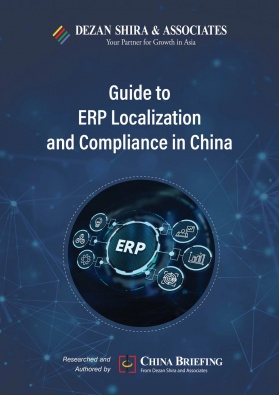China’s National Financing Credit Service Platform: Insights and Impact
In the first half of 2024, China has actively developed a National Financing Credit Service Platform to bolster the private sector by enhancing financial support. The credit enhancement services and risk-sharing capital pools can help foreign businesses enhance their operations and financial strategies.
On January 2, 2024, the National Development and Reform Commission (NDRC) organized a significant conference in Jinjiang City, Fujian, emphasizing innovative development for high-quality growth in the private economy. During this event, the ‘National Financing Credit Service Platform’ was introduced—a nationwide digital infrastructure designed to improve financing opportunities for private enterprises.
Subsequently, on April 2, 2024, the General Office of the State Council unveiled a comprehensive action plan aimed at strengthening financing credit service platforms. The plan focuses on facilitating financing for micro, small, and medium-sized enterprises (MSMEs). Key strategies include streamlining platform development, enhancing credit data mechanisms, and encouraging financial institutions to prioritize high-quality services for all enterprises, with particular attention to MSMEs.
In this article, we introduce the National Financing Credit Service Platform and explore its potential impact on foreign businesses.
What is the National Financing Credit Service Platform and why?
Historically, MSMEs and private businesses have encountered significant challenges in accessing affordable financing. These entities, especially those in the startup or growth phase, often struggle to secure bank loans due to their lack of collateral and credit data. Financial institutions that provide credit services rely on scattered and hard-to-obtain credit information, which limits their ability to assess the creditworthiness of these enterprises and extend loans.
To address this issue, China established the National Financing Credit Service Platform. This platform offers four key services:
- Credit information inquiry: Providing access to billions of pieces of credit information, the platform offers information query services to financial institutions. It bridges the information gap between banks and enterprises.
- Financing needs matching: The platform facilitates the matching of financing needs of businesses with financial products offered by banking institutions. This ensures comprehensive coverage of national financing supply and demand docking services.
- Access to enterprise-friendly policies: By centralizing the display of various enterprise-friendly financial support policies, the platform allows businesses to easily access and apply for suitable policies scattered across different government departments.
- Financing and credit enhancement services: The platform introduces financial guarantee institutions and risk-sharing capital pools. It provides “one-stop” processing for local credit enhancement and risk mitigation services, enhancing financing and credit opportunities for businesses.
Meanwhile, China aims to optimize its national integrated financing credit service platform network in several ways. Efforts include improving information collection and sharing platforms nationwide, integrating the national financial credit database, streamlining redundant local platforms by the end of 2024, and expanding information collection to cover major enterprise personnel, qualifications, and trade activities. Local platforms are also encouraged to develop specialized modules for emerging industries, green development, key industrial and supply chains, and agricultural sectors.
Currently, the National Financing Credit Service Platform has fostered a new inclusive finance model based on credit information. It provides comprehensive financing services for small and medium-sized enterprises, especially private ones. Going forward, the platform aims to strengthen financial support for private enterprise development by enhancing efficiency through credit information sharing and digital technology applications. This will increase credit availability, reduce costs, and broaden access for private enterprises.
Since its launch, the National Financing Credit Service Platform has been instrumental in addressing the financing needs of MSMEs. It has already amassed over 78 billion pieces of credit information and facilitated over 276 million inquiries by financial institutions. Presently, it receives an average of over one million visits per week. According to official data, Chinese banks issued RMB 25.1 trillion (US$3.54 trillion) in loans through the financing credit services system by the end of February, with RMB 5.9 trillion (US$820 billion) in credit loans.
The bigger background for the launch of the National Financing Credit Service Platform
The platform arrived amid China’s tightened control over the financial sector. Banks and financial institutions issued less credit in the first quarter of 2024 compared to the previous year, indicating subdued borrowing demand. Total social financing, including nonbank sources, amounted to RMB 12.93 trillion (US$1.787 trillion) in January-March, down RMB 1.61 trillion (US$220 billion) from the same period last year, according to the People’s Bank of China (PBoC). China has also been curbing the rapid growth of non-bank debt, especially from shadow banks outside the formal banking system. This data, while anticipated for February, reflects notable year-on-year declines, signaling ongoing volatility.
China’s bank loans expanded at the slowest pace on record in Q1, highlighting weak borrowing demand despite central bank efforts to ease policy and support the economy. The stock of yuan loans grew 9.7 percent in February from a year ago, the lowest growth rate since 2003. It was the first time this rate dropped below 10 percent. Data also suggest aggregate financing – a broad measure of credit – expanded by just 9 percent, also near a record low, indicating limited borrowing demand. Aggregate financing for the first two months decreased by RMB 1.1 trillion (US$150 billion) (-12% YoY), and new RMB loans fell by about RMB 930 billion (US$126 billion) (-13.8% YoY), both below market forecasts. The M1 money supply, which includes cash in circulation and corporate demand deposits, weakened to 1.2 percent, the lowest level since January 2022. This slowdown signals that companies are not planning to invest or expand production in the near term.
Nevertheless, on a national level, China’s economy grew faster than expected in the first quarter, offering some relief amid ongoing property sector weakness and mounting local government debt. The economy expanded by 5.3 percent year-on-year from January to March, surpassing analysts’ forecast of 4.6 percent and up from the previous quarter’s 5.2 percent. Quarterly growth increased to 1.6% from 1.4% in the prior three months. Earlier in March, China set a GDP growth target of “around 5 percent” for 2024 and announced the issuance of “ultra-long” special bonds for major projects.
In March, China also instructed banks to enhance financing support for the state-backed firm China Vanke and urged creditors to consider extending private debt maturities. This rare central government intervention aims to help stabilize the real estate sector amid a debt crisis marked by defaults among major property firms. Authorities are boosting financing for certain projects to support developers. This adds to investors’ long-term concerns.
China’s sluggish credit growth at the year’s start indicates continued pressure on Chinese banks and suggests the need for policy support. Authorities are signaling a targeted approach to economic support, highlighting that the primary issue lies in demand within the real economy, which cannot be resolved solely through monetary policy. Consequently, markets may need to adjust their expectations for further credit growth.
Potential Impacts on Foreign Businesses
Foreign businesses can leverage China’s National Financing Credit Service Platform to enhance their operations and financial strategies. This platform provides detailed credit information, facilitating the assessment of Chinese partners’ and customers’ creditworthiness, thus reducing business risks. By matching their financing needs with suitable financial products from Chinese banks, foreign businesses can access smoother and more efficient credit options. The platform also offers centralized access to enterprise-friendly financial policies, enabling foreign businesses to benefit from various incentives like tax breaks and subsidies.
Additionally, credit enhancement services and risk-sharing capital pools help manage financial risks, providing more security in financial planning. The extensive credit information and analytics offer valuable market insights, aiding informed investment decisions. Moreover, the platform fosters networking opportunities with a wide network of Chinese enterprises and financial institutions, promoting potential partnerships.
About Us
China Briefing is one of five regional Asia Briefing publications, supported by Dezan Shira & Associates. For a complimentary subscription to China Briefing’s content products, please click here.
Dezan Shira & Associates assists foreign investors into China and has done so since 1992 through offices in Beijing, Tianjin, Dalian, Qingdao, Shanghai, Hangzhou, Ningbo, Suzhou, Guangzhou, Dongguan, Haikou, Zhongshan, Shenzhen, and Hong Kong. We also have offices in Vietnam, Indonesia, Singapore, United States, Germany, Italy, India, and Dubai (UAE) and partner firms assisting foreign investors in The Philippines, Malaysia, Thailand, Bangladesh, and Australia. For assistance in China, please contact the firm at china@dezshira.com or visit our website at www.dezshira.com.
- Previous Article China’s New Company Law: Considerations for Foreign Stakeholders and FIEs
- Next Article New Data Security Risk Assessment Rules for Industry and Information Technology Sectors








